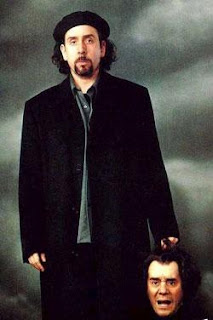.jpg)
+1+blog.jpg)
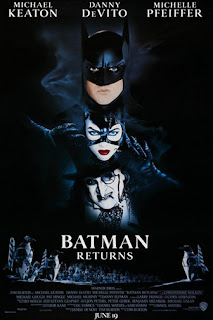+3+blog.jpg)
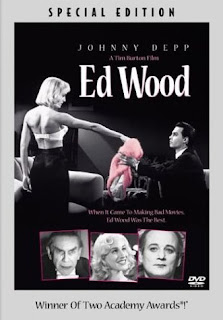.jpg)
+1+blog.jpg)
TIM BURTON in
“THE BEST OF BURTON (In the Shadows of Mainstream Cinema)”
"Tim's kind of an interesting, eccentric sort-- although I don't know him too well as a person. He's the kind of guy you could talk to for three hours and still not know what he's all about. I think Tim is an intrinsically shy person, very closed, and won't open up to a stranger."
-- Bob Kane, creator of Batman (1992)
To a devoted film fanatic, the name "Tim Burton" evokes a very specific mood and atmosphere: the baroque finery of the gothic; the agony and ecstasy of the deviant; the elegance and beauty of the dark and sinister—all distilled through the mind of a Goth Peter Pan who happens to be an ex-Disney animator.
Taking a look at his body of work, it quickly becomes clear that the best of Burton's films display a strong underpinning of absurdist humor, which cohabits well with the often dark surroundings; a quirky sensibility that can be both ghoulishly macabre and hilarious at the same time. And though Burton stumbled with the lamentably horrid Planet of the Apes, he returned to the dark fairy tale whimsy of his earlier work with the moving Big Fish, which helped pave the way for his take on Charlie and the Chocolate Factory, the stop-motion animated feature, Corpse Bride (co-directed with Mike Johnson), and the upcoming (and long-long-long awaited) film adaptation of Sweeney Todd: The Demon Barber of Fleet Street.
It is in the light of this latest collaboration with his cinematic alter-ego, Johnny Depp, that this article looks back to view, through a looking-glass darkly, the best of Tim Burton's ouvre.
1) Edward Scissorhands (1990): a loving, moving paean to the life of the outsider, Johnny Depp's unfinished, leather-clad Pinnochio is every single one of us, incomplete and fractured, merely looking for someplace where we can belong
2) Batman/Batman Returns (1989/1992): quite possibly the most subversive of all the superhero movies made thus far; in what is, ostensibly, PG-13 kiddie fare, Burton injects strains of insanity, disfigurement, child abuse and abduction, attempted infanticide, and duality. Aided and abetted by scripts filled to the brim with zingy one-liners and double entendres, Burton targets dead-on, what Batman is all about: sex and psychology
3) Ed Wood (1994): based on the true-to-life story of the man responsible for what is largely considered the worst film ever made (Plan 9 from Outer Space), Ed Wood is another moving tribute, this time, to the misunderstood artist, the low-brow visionary whose self-belief serves as armor against the banal mundanity of life and society; with an Oscar-recognized performance by Martin Landau (as washed-up horror icon Bela Lugosi)
4) Big Fish (2003): the winsome, Technicolor fantasia of this adaptation of the Daniel Wallace novel is a brilliant return to Burton’s brand of moving, magical film making; the often tumultuous relationship of fathers and sons is explored within the context of a tale about stories and storytellers, with the ultimate postmodern turn of the storyteller becoming his own story in the end
Truth to tell, nearly all of Burton's films are worth seeing (the exception being Planet of the Apes), though Sleepy Hollow is pure eye candy with a rather lame and predictable script topped by a Scooby Doo ending.
(And lest anyone go up in arms over my choices, The Nightmare Before Christmas was based on a story by Burton, and produced by him, but directed by Henry Selick, who went on to direct the equally interesting James and the Giant Peach, and the underappreciated Monkeybone, as well as providing stop motion animation for Wes Anderson’s The Life Aquatic with Steve Zissou, and who is currently wrapping up the film adaptation of Neil Gaiman’s Coraline. Since Nightmare wasn't directed by Burton, it was ineligible for the list.)
So, for those of you who prefer walking the darker shadows of mainstream cinema, hearken to the works of Tim Burton, who, at his best, understands the universal truths that lie hidden in childhood bogeymen and fairy tales, and who, with a curious, innocent optimism, invites us to tread the twisted and tangled paths of the haunted forests of our own less-than-perfect existences.
And in so doing, in telling his quirky, fractured tales, he is, perhaps, opening up to millions of strangers worldwide, in the best way he knows how.
(The above article is a revised version of its identically-titled predecessor.)
(Tim Burton image courtesy of façade.com; Edward Scissorhands, Batman Returns, and Big Fish OS’s courtesy of impawards.com; Ed Wood DVD cover art courtesy of amazon.com.)

+blog.jpg)
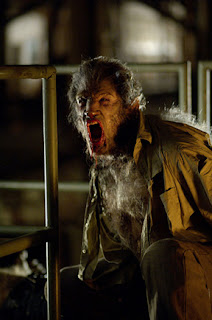+blog.jpg)


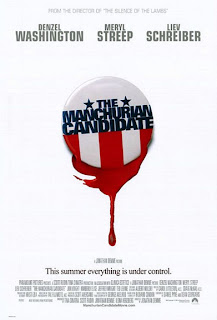+2+blog.jpg)
+dvd.jpg)
+1+blog.jpg)
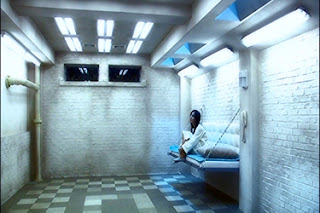
+blog.jpg)
+2+blog.jpg)
+blog.jpg)
.jpg)
+7.jpg)
+9.jpg)
+2.jpg)
+4.jpg)


.jpg)
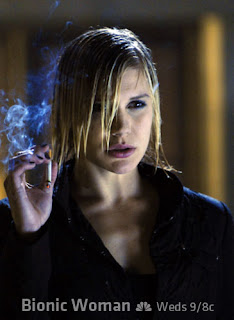.jpg)
.jpg)
+blog.jpg)
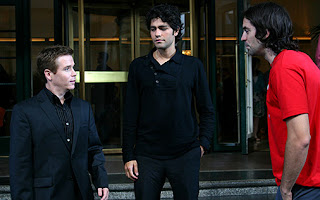

+os2+blog.jpg)
+10.jpg)
+2.jpg)
+12.jpg)
+dvd+blog.jpg)
.jpg)
+blog.jpg)
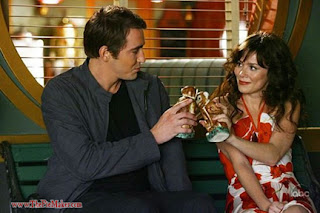+2+blog.jpg)
+3+blog.jpg)
+3+blog.jpg)
+2+blog.jpg)
+1+blog.jpg)
+blog.jpg)
+blog.jpg)
+blog.jpg)
+blog.jpg)


+blog.jpg)
.jpg)